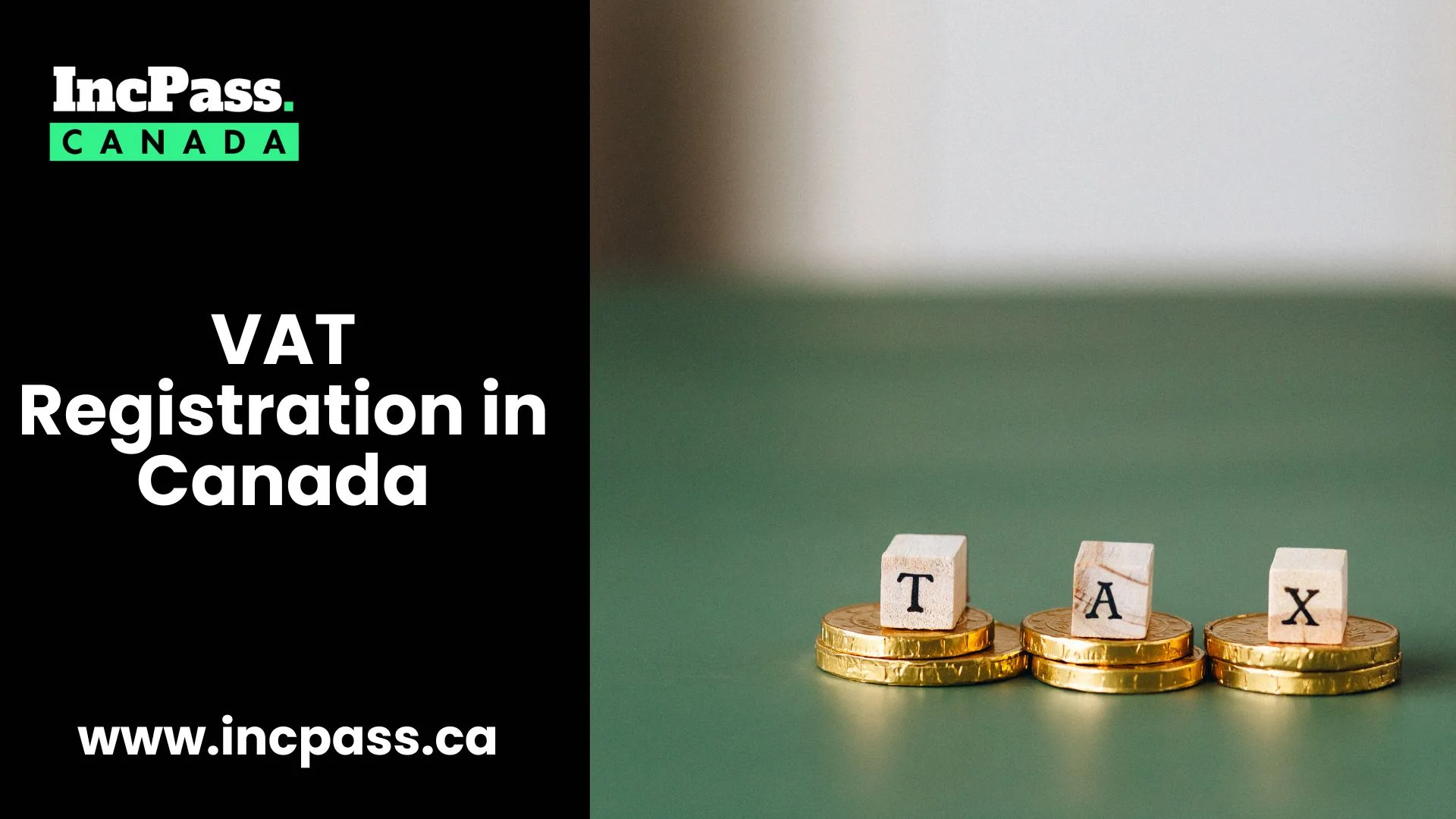Canada, a vast North American country, is a lucrative market for local and foreign businesses. One of the crucial steps to conducting business in Canada is understanding and complying with its taxation system, especially the Value Added Tax (VAT) or Goods and Services Tax (GST). In this guide, we delve into the specifics of GST/VAT registration in Canada, the requirements, and the benefits.
Understanding Value Added Tax (VAT) in Canada
In Canada, the VAT system is known as the Goods and Services Tax (GST). The GST is a major indirect tax levied on most goods and services produced and provided in Canada. It is important to note that in certain provinces, the GST is referred to as the Harmonized Sales Tax (HST).
Notably, a Canadian business or individual must register for VAT with the tax authorities to collect this tax. The GST payments must be made throughout the financial year. For individuals, trusts and partnerships, the financial year coincides with the calendar year. Corporations may use the calendar year or their fiscal year for GST purposes.
The Process of VAT Registration in Canada
To help you understand the process of VAT registration in Canada, our local consultants have prepared this guide. We aim to assist both local and foreign investors in preparing their documentation for VAT registration, liaising with Canadian authorities, and ensuring VAT compliance.
Registration Obligations of a Foreign VAT Payer in Canada
Foreign companies commencing business activities in Canada usually register a legal entity following the Canadian company law applicable in their chosen Canadian province. However, not all foreign businesses need to register a local legal entity to trade goods with local buyers.
This does not exempt them from tax obligations. If the foreign entity supplies or sells services or products in Canada, they must register for VAT. The tax obligations are based on their tax residency, and foreign entities have two options:
- Operate through a permanent establishment
- Trade goods/services without a permanent establishment
The obligations resulting from these options are regulated under Subsection 123(1) of the Excise Tax Act.
VAT Registration Requirements for Foreign Companies in Quebec
Quebec, a significant region in Canada, requires local and foreign companies to pay two types of VAT – the basic GST at a rate of 5%, and the Quebec Sales Tax (QST) at a rate of 9.975%. These taxes apply to all service and product sellers and suppliers, qualifying for tax payment.
Applying for a Canadian Business Number
A crucial step in the process of company formation in Canada is obtaining a business number. This requirement extends to foreign companies operating in Canada. Companies that must register for VAT in Canada must also have a business number, regardless of whether they are required to register for VAT or have opted to register voluntarily.
Voluntary VAT Registration in Canada for Non-Residents
Non-resident companies have the option to register voluntarily for VAT in Canada under the GST regulations. This situation applies when they order goods or services exported or delivered in Canada, or when they have entered agreements for the supply of goods and services in Canada.
When is VAT Registration Required for Local Businesses in Canada?
A person or business is required to register for VAT in Canada when they start making taxable supplies. It’s worth noting that trusts and associations also need to register for VAT if they sell goods or services.
VAT Registration Regulation in Canada
Several laws govern the levy of VAT in Canada. These include the First Nations Goods and Services Tax Act, along with other laws that outline the registration requirements for Canadian businesses regarding GST.
Entities Required to Register for VAT in Canada
Entities supplying goods and services exempt from VAT cannot apply for GST or HST accounts in Canada. Apart from this, the following business entities are required to register for GST/HST in Canada:
- Companies selling goods and services subject to VAT
- Charities and public institutions with a revenue exceeding CAD 50,000 in a calendar year
- Non-resident companies interested in applying for GST registration in Canada
- Taxi operators and financial institutions
Documents Required for VAT Registration in Canada
To register for GST/HST/QST in Canada, a company, entity, or individual must file specific documents with the tax authorities. These include the application form, the company’s registration documents, the GST/HST questionnaire for non-resident companies and non-resident investors, among others.
New GST/HST Rules in Canada
Starting from July 1, 2021, entities registered as e-platform operators or those considered as such, both resident and non-resident, have to follow new regulations regarding GST/HST in Canada.
Who Must Pay the VAT in Canada?
The VAT applies to most goods and services bought by the populace. However, it is collected by companies in Canada and forwarded to the tax authorities. To collect VAT, a company must have a GST number and account attached to it.
The VAT (GST) in Canada
It’s essential to understand how VAT registration must be completed by Canadian companies, sole proprietorships, and individuals involved in the sale of goods and products.
Advantages of GST Registration in Canada
Even if GST registration isn’t mandatory up to a point, Canadian companies applying for VAT numbers voluntarily can obtain various advantages.
- Credibility and Professionalism: GST registration lends an aura of credibility and professionalism to a business, signaling its commitment to compliance with regulatory requirements and adherence to industry standards. This can instill trust among customers, suppliers, and stakeholders, thereby enhancing the company’s reputation in the marketplace.
- Input Tax Credits (ITCs): Registered businesses are eligible to claim Input Tax Credits (ITCs) on GST paid on business expenses and inputs. By offsetting the GST paid on purchases against the GST collected on sales, companies can effectively reduce their overall tax liability, thereby improving cash flow and profitability.
- Competitive Pricing: GST registration enables businesses to include GST in their prices and claim ITCs on their inputs. This allows for more accurate pricing strategies, as the GST component becomes transparent to consumers. Moreover, registered businesses can compete more effectively with larger enterprises that are mandated to charge GST.
- Access to Government Contracts: Many government contracts and procurement opportunities require suppliers to be registered for GST. By obtaining GST registration, businesses can expand their market reach and access lucrative government contracts, thereby diversifying their revenue streams and fostering growth.
- Cross-Border Trade: GST registration facilitates cross-border trade by enabling businesses to recover GST paid on imports and claim refunds on GST incurred on exports. This streamlines international transactions, reduces administrative burdens, and enhances competitiveness in global markets.
VAT Rates and Filing Requirements in Canada
In Canada, the equivalent of VAT (Value Added Tax) is the Goods and Services Tax (GST), which is levied at the federal level, along with the Harmonized Sales Tax (HST) in certain provinces. Understanding the VAT rates and filing requirements is crucial for businesses operating within Canada’s taxation framework. Here’s an overview:
Goods and Services Tax (GST)
- The standard GST rate across Canada is currently set at 5%.
- GST is applicable to most goods and services sold or provided in Canada, unless specifically exempted or zero-rated.
- Businesses with annual worldwide taxable sales exceeding $30,000 CAD are required to register for and collect GST from their customers.
- GST returns must be filed either quarterly or annually, depending on the business’s annual GST revenue.
Harmonized Sales Tax (HST)
- Certain provinces, including Ontario, Nova Scotia, New Brunswick, Newfoundland and Labrador, and Prince Edward Island, have harmonized their provincial sales tax with the federal GST to create the HST.
- The HST rates vary by province, with combined rates ranging from 13% to 15%, inclusive of both federal GST and provincial sales tax components.
- Businesses operating in HST-participating provinces follow similar registration and filing requirements as those for GST, with the additional responsibility of remitting the provincial portion of the HST to the respective provincial authorities.
Filing Requirements
- Registered businesses are required to file periodic GST/HST returns with the Canada Revenue Agency (CRA), reporting the amount of GST/HST collected from customers and the amount of GST/HST paid on business expenses.
- GST/HST returns typically include information such as sales revenue, GST/HST collected, input tax credits claimed, and net tax owing or refundable.
- Filing deadlines for GST/HST returns vary based on the reporting period, with quarterly filers typically required to submit returns within one month after the end of each quarter, and annual filers within three months after the end of their fiscal year.
Voluntary Registration
Businesses with annual worldwide taxable sales below the $30,000 CAD threshold may voluntarily register for GST/HST if it’s advantageous for their operations, such as to claim input tax credits on business expenses or to appear more credible to customers and suppliers.
Conclusion
Registering for VAT in Canada is a crucial step for businesses operating in the country. This guide provides a comprehensive overview of the process and requirements, helping both local and foreign entrepreneurs navigate the Canadian tax system smoothly.
Contact IncPass Canada’s Lawyer Team




